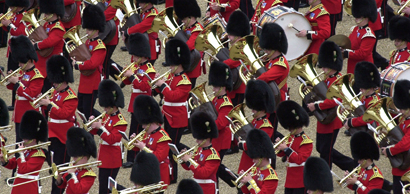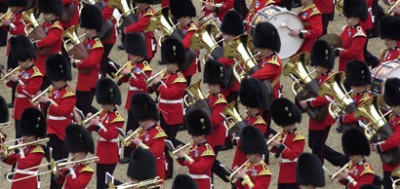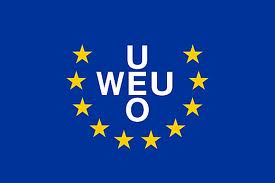Will the defense agency budget increase? Brits say “No”
While the discussion on the general European budget for 2011 seems to be continuing but people are more optimistic - an agreement could be reached in the coming days - the debate continues at the European Defense Agency on the institution's own budget (NB: the Agency's budget does not depend on the general budget). Pursuing its "zero" option, the United Kingdom officially announced its intention to veto any increase in the agency's budget. The draft budget was betting on a 3,9% increase. A figure that may seem significant but to be considered in relation to the Agency's budget, is rather low, at 31 million euros. Or about 1,2 million euros. Still too much for the UK...
No it's no...
The British Minister of Defense therefore wrote to Baroness Ashton, head of European diplomacy but also president of the European Defense Agency, a letter which the Sunday Telegraph. The point is clearly expressed. The United Kingdom has undertaken a drastic revision of its military budget, there is no question of spending more elsewhere. " It will be impossible to justify... a 3.9% increase in the EDA budget, costing the UK taxpayer nearly £200,000 when we are having to cut capabilities and reduce service personnel at home. (...) As you know, we have recently announced spending plans which will see the UK's defense budget reduced by around 7.5%, and we are not the only nation facing such a challenging position.... we would want, at best , zero growth for the agency's total budget for 2011.”
Decryption: a position more ideological than budgetary
It should be borne in mind that the gross figure for the increase (1,2 million euros) for the Agency seems rather ridiculous, for 26 Member States (*): 1,2 million euros. Which represents at the very least, around 200.000 euros for the biggest contributors (Germany, France, United Kingdom). At a time when everyone has only one word in mind - sharing skills, resources, pooling (which we summarize by "pooling and sharing"), this increase seems more than justified.
The British position is not new. For several years, the United Kingdom has done everything it can to stifle "the agency", giving it the trickle of the rare means that are essential to it. Every year the budget discussion is epic and usually results in 1 against all. As for the adoption of a three-year budget, it has always been thwarted mainly by the United Kingdom. In times of budgetary restraint, and axing of national defense budgets (2), this traditional British position is even easier to support.
A conjunctural element must be added to this position. The British agreed to water down their wine at the Lisbon summit on the 2011 European budget (the general budget). The agreement negotiated by three (Cameron, Merkel, Sarkozy) makes it possible to accept a certain budgetary flexibility under the margin of a general increase in the budget of 2,9%. It is necessary for the British Prime Minister and his Minister of Defense to appear intransigent on the budget. Hence this cleverly organized leak of a letter to several British newspapers.
Holding the budget of the European Defense Agency hostage is all political gain for the British government. We do not facilitate the task of the British Chief Diplomat, Cathy Ashton who is, in any case, not on the same political side. In passing, he is reminded who is the real boss of the Agency (the Ministers of Defence). And the risk is almost nil. Since, with the "London agreements" (3), most of European industrial cooperation will take place at bilateral level and not at multilateral level (an old British claim as well).
(*) Denmark does not participate in the European Defense Agency. Norway (a non-member country) participates in certain projects but does not contribute to the general budget.
Read also:



